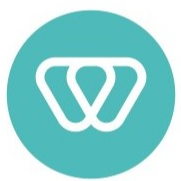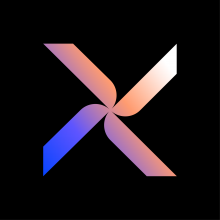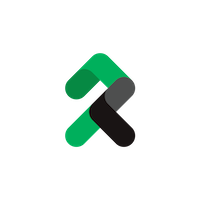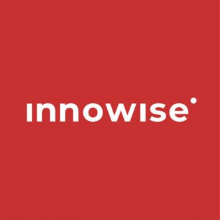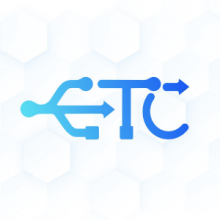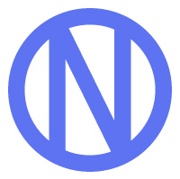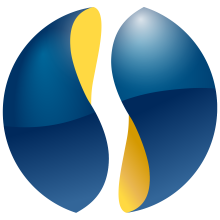
There are 14 Companies in France
that provide Go development Services!
France's IT services market is the sixth-largest in the world. It currently occupies around 4.4% of the global IT services market. The market value of IT services accounts for around 45.7% of the overall market of IT. The IT services market is expected to grow at a CAGR of around 16.45% from 2025 - 2030, potentially reaching $81.21 billion by 2030.
Discover Top IT Companies in France specialized in Go and other related services. Find the best IT service providers for your projects.
Go, also known as Golang, is an open-source programming language created by Google. It is designed for simplicity, efficiency, and concurrency, making it a versatile choice for building a wide range of applications, from web services to system software.
Handpicked companies • No obligation to hire • 100% risk-free
Featured Companies in France
This month, the following Go development companies managed to provide an outstanding service and support. It's worth taking a look.
Fire Bee Techno Services is an ISO-Certified Blockchain and AI Development Company In india and across the world with 13+ years of experience.
Explore Top Go development Companies in France
AI-powered mobile apps from LA's most diverse development team. Since 2019.
Etixio delivers reliable offshore IT expertise through dedicated teams, custom development, and competitively priced tech support for long-term value.
Tech Magister has been supporting companies in their digital transformation since 2020. We develop solutions that create value.
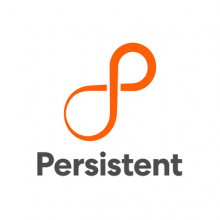
Persistent Systems Verified Company
Rhône-Alpes, France Head office in: India
See Beyond, Rise Above
Services:
Established in 2000, Euro Tech Conseil is a premier software development firm renowned for crafting intricate, tailor-made IT solutions.
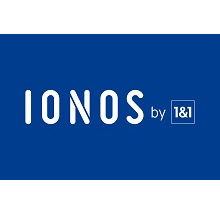
Sarreguemines, France Head office in: Germany
It is inspired by the ionosphere; the upper part of the Earth's atmosphere that contains a high concentration of ions and free electrons.
Services:
Filter Go development Companies in France by Cities
Find the right tech company near you or from a specific city. Some of the best companies might be located in smaller cities.
Find more Go development companies around the world
TechBehemoths is the world's most advanced and user-friendly platform to match IT Companies with real clients without hustle.
The French ICT Industry: Data & Insights
France's IT services market is the sixth-largest in the world. It currently occupies around 4.4% of the global IT services market. The market value of IT services accounts for around 45.7% of the overall IT market, and is expected to grow from over $41 billion in 2016 to over $64.27 billion in 2025.
The IT services market grew at a CAGR of around 1.1% in the historic period and is predicted to grow at a CAGR of around 16.45% from 2025 - 2030. potentially reaching $81.21 billion by 2030.
Why Should You Work With a French IT Company?
France’s biggest advantage in the region is the growing number of young professionals who are enrolled in the IT industry. In Western Europe, France has the lowest outsourcing rate and is relying on its own professionals mainly to provide the entire range of IT services. Along with the increasing number of human resources, the French IT infrastructure is among the leading in Europe, and having these factors combined, France has the third-largest IT sector in Europe, with a share of 16.5% in 2025.
What to Be Aware of When Working With French IT Companies
Good IT infrastructure, well-developed business culture, and skilled professionals - France has it all to continue its IT growth in the following years. So, what’s the missing puzzle that makes France the third-largest IT market in Europe and not the first?!
Basically, the cultural differences and especially linguistic rigidity make French companies less attractive. In this way, the IT industry continues to rely on Francophone and French-speaking countries, but with good progress made, especially by young companies and IT startups that have started to focus more on development and growth and less on cultural aspects.
How Reliable Are French IT Companies
The strong business culture and tradition, along with local specialties made French companies some of the most trustworthy in Europe, and in the world. Looking back at the European IT market share, France has an incontestable reputation, and it attracts all types of businesses to have IT services done there, by local professionals.
How the French IT Industry Relates to the Neighboring Countries
With Germany and the UK in the leading positions, France’s IT industry continues to grow and possibly pose a good challenge to the UK IT industry. After Brexit, a consistent number of IT companies fled from the UK and relocated to Germany, Ireland, and France, giving to their last chance to take second place in the European IT market share. In the long run, France’s IT industry has two big competitors - the UK and Spain, which share the neighboring position in the European IT ranking.
What is Go and what are its benefits for your projects?
Go, also known as Golang, is an open-source programming language created by Google. It is designed for simplicity, efficiency, and concurrency, making it a versatile choice for building a wide range of applications, from web services to system software.
More than 363 verified IT companies leverage Go in their development projects. These companies range from startups to tech giants like Google, Uber, and Dropbox. They appreciate Go's speed, reliability, and ease of use for building scalable and performant software.
Go service providers rely on various tools and technologies to enhance their development process. Some commonly used tools include the Go compiler, which transforms Go code into executable binaries, and the Go standard library, which offers essential packages for building applications. In terms of deployment, containerization technologies like Docker are frequently used to package Go applications for consistency and portability.
You may be wondering, how is Go Different from C, Rust, and Java. So, below we’ll try to show you more about the differences that exist between them:
-
Go vs. C: While both Go and C are low-level languages, Go offers modern features like garbage collection and memory safety, which simplify programming. Go is also more concise and expressive than C, making it easier to read and maintain. But if you think your business needs companies that also specialize in C, you can find them on this page
-
Go vs. Rust: Rust emphasizes memory safety and control without sacrificing performance. While Go offers simplicity and readability, Rust provides fine-grained control over memory and is suitable for systems programming with a focus on safety.
-
Go vs. Java: Java is a high-level language often used for building enterprise-level applications. It relies on a virtual machine (JVM) and is known for platform independence. Go, on the other hand, compiles native code, offering better performance and efficiency for certain use cases.
Languages related to Go in terms of use cases and features include Python, Ruby, and Node.js. These languages, like Go, are suitable for building web services and backend applications and are known for their developer-friendly features. If you need these programming languages in addition or instead of Go, just click on their corresponding words above to find verified vendors providing those services.
When selecting IT companies that use Go for your project, consider factors such as the company's experience with Go, their portfolio of past projects, client references, and their understanding of your specific project requirements. Look for companies that align with your project's complexity, scalability needs, and budget.
Go service providers are essential for various project types, including:
-
Web Services: Go is well-suited for building RESTful APIs and microservices due to its excellent performance and simplicity.
-
Networking Applications: Go's concurrency support makes it ideal for developing network-related software such as servers and proxies.
-
Cloud Applications: Go's efficiency and speed are valuable for building cloud-native applications and serverless functions.
-
System Software: Go can be used for developing system utilities, command-line tools, and operating system components.
Go is a versatile language, and its speed, simplicity, and efficient concurrency model make it suitable for a wide range of projects, making it an excellent choice for modern software development.



